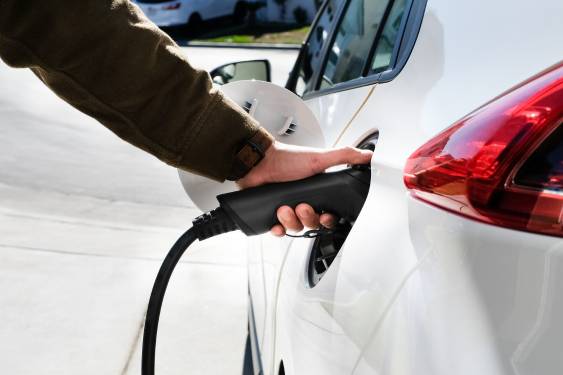
Written by Kayla Jane Barrie Updated on Feb 17, 2026 4 mins read

Are you thinking about buying a hybrid? Many Canadian drivers are making the switch to HEVs and exploring the pros and cons of hybrids.
S&P Global Mobility reports that BEVs accounted for 10.0% of registered vehicles in Canada in Q4 2023, while PHEVs made up 3.2% of registrations. As drivers slowly transition to a greener fleet, some of the first steps are to understand the different types of hybrid vehicles and the cost of maintenance requirements.
When considering a hybrid car, it's important to weigh the pros and cons based on your individual needs and priorities. Here’s a breakdown of some areas to consider.
A hybrid car is a vehicle that uses two types of motors to run. It has a standard combustion engine along with an electric motor. These cars are powered by a hybrid battery, which is smaller than a fully electric vehicle, and a conventional engine, also known as an internal combustion engine. As you read through the advantages of hybrid cars, keep this fact in mind.
Gasoline-powered cars are equipped with a combustion engine and do not have an electric motor. For some drivers, easy access to fuel is a significant challenge when considering a switch to a hybrid or electric car. Some of the other top cons include cost and battery replacement. Here’s a look at the most popular cons to hybrids:
Drivers must make large-scale financial decisions when buying a car but also want something that will last. On average, Canadians are estimated to pay over $1,300 a month to own a car in 2024 – so choosing a hybrid isn’t always a fast decision, but it can pay off in the long run. Users on Reddit have posed the same question – Is it worth getting a hybrid vehicle in the long run.
Here are a few things to consider:
One major concern with these cars is the battery. The lithium-ion batteries in hybrid vehicles also degrade over time, reducing battery performance. As a result, the battery may require longer charge times and hold less charge. In addition, repairs for these batteries can be expensive, ranging from $2,000 to as much as $10,000.
With proper hybrid vehicle maintenance, drivers can expect their car to last 10-20 years, or 250,000 kilometres.
Hybrids offer impressive efficiency that is easily noticeable while driving and in your wallet. With the electric motor taking care of initial low-speed acceleration and engine-off "sailing" powertrain functions, hybrid vehicles provide better average mileage than cars with only a traditional internal combustion engine. Choosing a hybrid option is often more cost-effective than their gas-only counterparts for compact and midsize cars and SUVs in the long run.
Compared to gasoline vehicles, hybrid cars use 40% less fuel in the city and 20% less on highways. Thus, they are great options for both city and highway driving.
If you are ready to buy an affordable hybrid car, don’t forget to set up and take advantage of any savings with hybrid car insurance.
| Categories | Auto |
|---|---|
| Tags | Buy and Sell VehiclesElectric |
Read our insurance blog to get helpful tips, information and news.
Learn about Canada's new Electric Vehicle Affordability Program (EVAP). Discover how the $50,000 transaction rule works, which cars qualify, and how to claim your rebate.
Fatal collisions in Canada rose 9.14% from 2019 to 2023. Discover the latest road safety statistics, provincial rankings, and how these trends affect your auto insurance rates.
Find out if a seatbelt ticket will raise your car insurance rates and how insurers view seatbelt violations.
Ontario’s Project CHICKADEE dismantled a $25 million auto theft ring. Discover how this massive bust targets export enablers and what it means for rising Canadian insurance premiums.